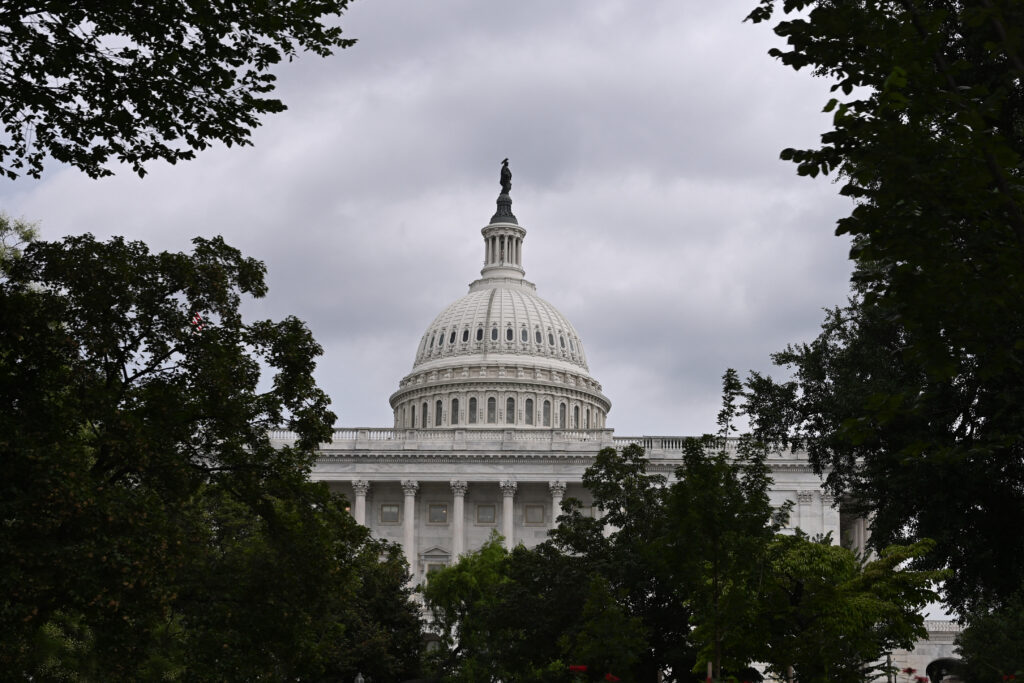House Republicans Hold Voter Suppression Hearing With Top Anti-Voting Lawyers

House Republicans held a hearing Tuesday designed to boost the Trump administration’s crusade for further tightening voting rules.
The panel gave a platform to leaders of two top anti-voting legal and advocacy groups to spread misinformation about voting.
One of the hearing’s Republican witnesses, Public Interest Legal Foundation (PILF) president J. Christian Adams, argued that Congress should consider tightening federal voting law to require election officials to do more to keep accurate rolls, because the courts haven’t interpreted the National Voter Registration Act in the way Adams would like.
“Here’s a question Congress might ponder: What does Section 8 of the National Voter Registration Act mean when it requires that states must, ‘conduct a general program that makes reasonable effort to remove the names of ineligible voters from the official lists of eligible voters?’” Adams said.
“According to courts, unfortunately, now it means next to nothing. That is not what Congress intended in 1993.”
Adams rattled off a number of recent court cases that PILF lost because of the court’s interpretation of the NVRA’s vague language on voter list maintenance procedures. At the end of his opening remarks, Adams also proposed an alternative to help states purge voters from their rolls.
“One way to improve list maintenance is for states to use commercial credit data to clean voter rolls,” he said.
Democrats on the committee used the hearing to call out the Trump administration’s recent weaponization of the U.S. Department of Justice to attack voting rights across the country.
“It is no coincidence my Republican colleagues called this hearing to create an illusion of election oversight while they attempt to make the case to purge eligible voters from voter lists under the guise of ‘election security,’” Rep. Joe Morelle (D-N.Y.), ranking member on the committee, said in a statement prior to the hearing.
Morelle invited Mary Kay Heling, a North Carolina voter whose vote was jeopardized in the state’s contentious Supreme Court election last year, to testify about her experience. Heling’s voter registration status is once again in limbo due to the state’s new plan that risks removing nearly 100,000 registered voters from North Carolina’s rolls.
“Voting is not just a privilege or a right, it’s a responsibility. Your civic duty. My vote is important. It is my voice in how our city, our county, our state, and our nation is governed,” Heling said. “I’m here to represent all those North Carolinians whose voter registrations are being challenged.”
Later in the hearing, Rep. Greg Murphy (R-NC) addressed Helig and the tens of thousands of disenfranchised North Carolina voters, and said that while what happened to Heling “was horrible… it’s much worse if we have somebody voting who shouldn’t, than somebody, sadly enough, going through what you did.”
Rep. Julie Johnson (D-TX) later fired back at Murphy.
“Dr. Murphy just said that he was OK with a citizen not being allowed to vote, if it prevented somebody who wasn’t eligible to vote from voting,” she said. “The reality is the Constitution of the United States is pretty clear on the matter… the right of citizens of the United States to vote shall not be denied or abridged by the United States or by any state.”
And Rep. Norma Torres (D-CA) submitted several articles to the Congressional Record documenting Adams’ and PILF’s history of falsely accusing people of voter fraud.
“These reckless actions make it clear to me that Mr. Adams and some of the Republican witnesses here today are not here to ensure that our elections are run fairly, but rather to make sure that elections favor one party: The Republican Party,” Torres said. “Time and time again we see this play out from President Trump and my colleagues from across the aisle pushing misinformation when it comes to election results and voter fraud. These actions have one goal: to sow distrust in our election system, to suppress the vote and to make it harder for Americans to have their voices heard.”